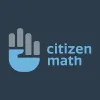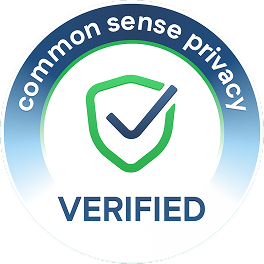Take a look inside 4 images
Citizen Math
Pros: High-interest topics put math in context for kids; comes with truly useful teaching resources.
Cons: While many activities pique kids' interest by explaining everyday curiosities, there are some missed opportunities to raise kids' awareness of important real-world problems.
Bottom Line: Easy-to-deliver lessons use real-world topics tweens like.
Citizen Math is a supplemental resource great for introduction to math topics. Look for ways to make it accessible rather than restricted (e.g., used only as a reward or extra credit). Teacher involvement is necessary, so it's great for in-class work among partners, groups, or individuals rather than as homework. Straightforward lessons guide teachers step by step, but they're not "plug and play." Give lesson guides a thorough review, with attention to scripting, time requirements, and materials. Adjust the lesson for the teaching setting, and ensure there's a working internet connection for slideshows, as they can't be downloaded.
Choose activities to address Common Core standards; at least two are covered by each lesson. Involve kids in picking which problem to explore next. Challenge students to extrapolate one problem to develop another that must be solved the same way. Have kids generate original questions about mathematics and look for ways to tie in scientific investigation.
In an effort to improve middle and high school kids' attitudes about the subject, Citizen Math (previously reviewed as Mathalicious) teaches math via trendy, open-ended, real-world scenarios. Companion materials like student worksheets, a teaching guide, and interactive media guide each lesson. People with significant math and education chops design the lessons and support teachers with goodies like flexible scripting, lots of visuals, support for potential challenges, and follow-up questions. Every lesson is tied to multiple Common Core standards, with specifics provided right up front.
On the site, lessons are searchable by standard, theme, or keyword. Lessons are also organized by helpful grade-level units. Each lesson provides an opportunity to reflect and interact with other educators.
Citizen Math mentions a statistic from a 2009 Raytheon Company survey: "61% of middle school students say they'd rather take out the garbage than do their math homework." Within the context of high-interest topics, Citizen Math can entice even hardened math haters into having fun with numbers. Problems whet appetites with thoughtful questions about ordinary things -- subtle templates for kids to seek out and question mathematics themselves. There's an obvious effort to be "cool," but lessons are comprehensive and take math seriously.
It's the right time to reengage kids with the subject: Middle schoolers' self-concepts (e.g., "I hate/am bad at math") are still fluid and up for challenge. And with Raytheon Company reporting that in 2012, only 44% of middle school kids prefer trash duty to math, maybe Citizen Math is onto something. Perhaps a data analysis exercise for their next scenario?












